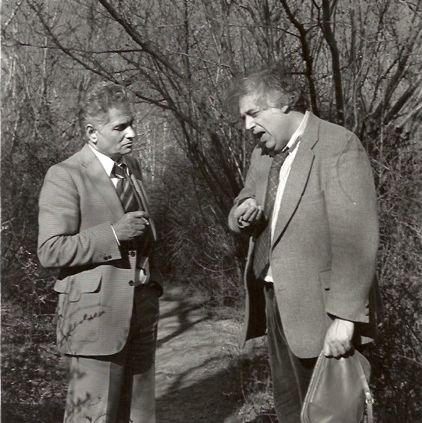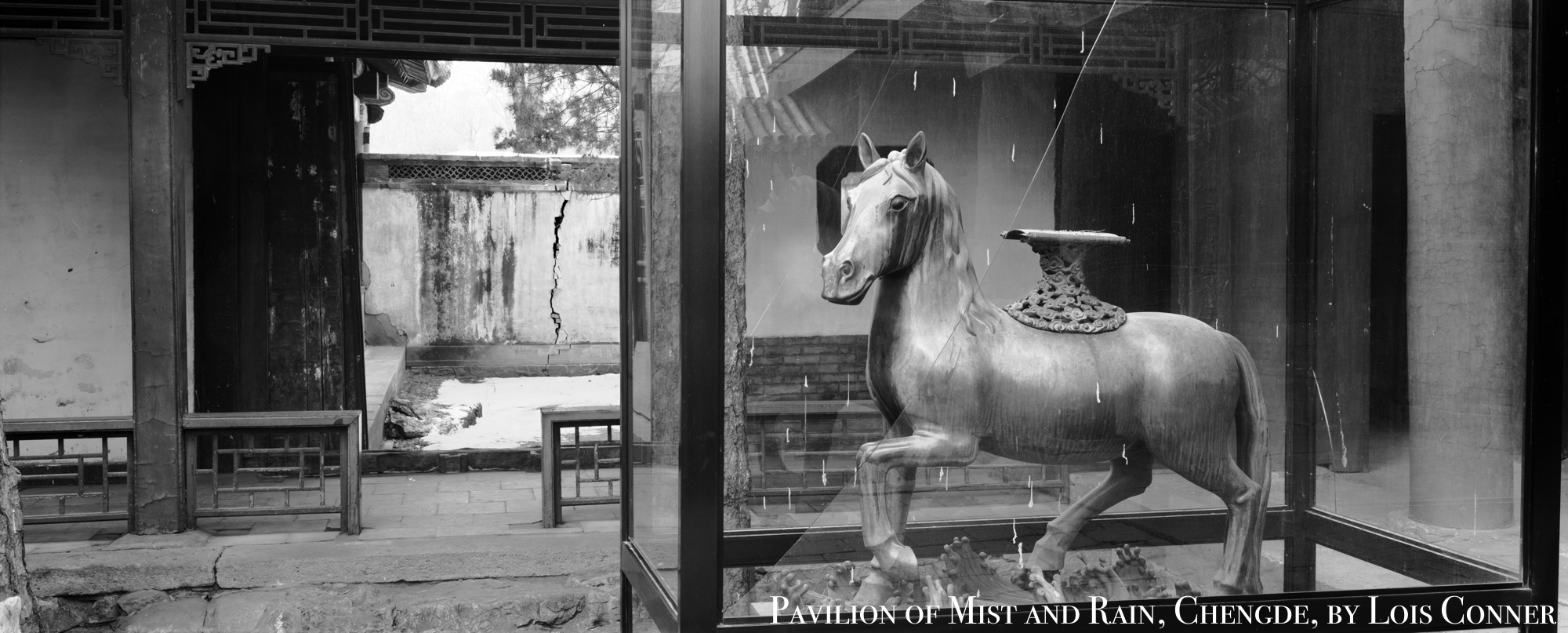Spectres & Souls
A few days after the death of Harold Bloom on 14 October 2019, I listened to an interview with him recorded by Phillip Adams, an old friend and a remarkable interlocutor, on Late Night Live, the program that Phillip has hosted on ABC radio for three decades.
The discussion, which focussed on Bloom’s latest book at the time on the theme of ‘Shakespeare and the invention of the human’, was part of a longer conversation that Phillip had recorded at Bloom’s Washington Square apartment in New York punctuated by the tintinnabulation of Hare Krishnas outside. It had originally been broadcast on 8 July 1999 and I listened to the podcast that Phillip repeated on 16 October 2019 in memory of the recently deceased scholar as I walked along the esplanade at Petone (the Māori word ‘Pito-one’ means ‘end of the sand beach’) on the north shore of Wellington Harbor.
***

***
A week later I travelled to Vancouver to deliver the annual Yip So Man Wat Memorial Lecture at the University of British Columbia. My address, the title of which was ‘Where Silence Reigns — Startling Claps of Thunder 於無聲處聽驚雷’, focussed on the ‘written rebellion’ of Xu Zhangrun in Beijing and the popular uprising in Hong Kong. The theme both of that lecture and an accompanying research seminar was what I referred to as ‘intersecting with eternity’, that is how through literature and the animating power of an unfettered mind, people can at any point engage with the unbroken history of unique and individual human expression. In China today, I suggested to my Canadian audience, the clash between those who strain to raise their voices and the power holders who would silence them reflects that ancient enterprise and its enemies.
After Canada, I spent two months in the United States, visiting friends, presenting talks, reading and writing. As had been my habit for over thirty years, I also spent long hours in New York book stores in a tireless quest to:
‘Read deeply, not to believe, not to accept, not to contradict, but to learn to share in that one nature that writes and reads.’
— Harold Bloom, How to Read and Why (2001)
My encounters with Harold Bloom were also as a reader. They began in 1990 by way of Sexual Personae, a verbal tidal wave of a book by Camille Paglia. One of Bloom’s graduate scholars with a uniquely bristling brand, Paglia has inspired awe and outrage in unequal measure ever since that book appeared.
In 2019, I added to the reading relationship that I had with both Paglia and Bloom that had thrived for nearly three decades when, at Strand Books, I bought copies of Falstaff — Give me life and Cleopatra — I am Fire and Air, two volumes in a series of five short books on ‘Shakespeare’s Personalities’ that Bloom composed towards the end of his monumentally prolific life. (I had read Provocations: Collected Essays on Art, Feminism, Politics, Sex, and Education, Paglia’s latest book, published in 2018, the previous southern summer.)
On Boxing Day 2019, at the invitation of Alexandra Munroe and Robert Rosenkranz, Lois Conner and I joined Andrew Solomon, his husband and son, to spend a week in Aspen. Andrew, whose literary accomplishments included art criticism, and I had first met in September 1999 when I presented the keynote address at a conference held at the Asia Society to mark the opening of ‘Inside/Out: New Chinese Art’. Although we had renewed our acquaintance when ‘‘Art and China after 1989: Theater of the World’, co-curated by Alexandra, opened at the Guggenheim Museum in October 2017, it was not until late 2019 that we really had a chance to talk.
On New Year’s Eve, overlooking the town of Aspen from Alexandra and Robert’s snowy eyrie, and in the afterglow of a fireworks show that we had drunk in with champagne, and consumed with caviar, blinis and sour cream, Andrew and I somehow ended up talking about Harold Bloom. Andrew mentioned his connection to the renowned teacher and critic and told me that he written an essay in commemoration of his old mentor shortly after his death in October. I was interested to read it and, now, I have the pleasure of reprinting it below.
The memory of that otherworldly evening acquired a mythic lustre with the realisation that the world was teetering on a precipice.
***

***
As the student of another controversial mentor — Pierre Ryckmans (Simon Leys) — Andrew’s observations about Harold Bloom resonated powerfully with my own experience, despite the fact that in terms both of personal style and public persona the two great men could not have been more different (listen, for example, to Phillip Adams, ‘A conversation with Pierre Ryckmans’, Late Night Live, 18 January 2012).
However, Andrew could as well have been talking about Pierre Ryckmans when he says:
‘Whenever he explained what made a particular poem noble there was a continuity with everything else he had elucidated, so that studying with him was not a succession of momentary revelations but a gradual process of understanding a unifying view of literature and, indeed, of life.’
Bloom and Pierre similarly encouraged in their students and readers to appreciate that:
‘The accumulated wisdom of humankind is not concentrated in any single canon; it is in the sum of everything we see or hear or think or create.’
For those dealing with the suppression of academia and the life of the mind under China’s autocracy, or those confronted by the suffocating politics of both right and left in the United States, Andrew wisely declares that:
‘The humanities Harold Bloom championed, even as they are transformed outside his particular tastes, are our recourse against injustice, not a manifestation of it.’
The value of humanities, of reading, of ‘encounters with eternity’ are central to the efforts of China Heritage, as well as being something conveyed by our work on writers and cultural figures like Xu Zhangrun, Dai Qing, Geng Xiaonan, Liu Xiaobo. In the company of Harold Bloom, Camille Paglia, Pierre Ryckmans and a host of others they all jostle, vivaciously, in my 心 xīn, or heart-mind,
I am deeply grateful that Andrew granted me permission to reprint ‘In defense of Harold Bloom’ in China Heritage. It allows me to salute a literary lion or, as the classical Chinese expression puts it: 借花獻佛 jiè huā xiàn fó, ‘to make an offering to Buddha with someone else’s flowers’.
***
Andrew Solomon is a writer and lecturer on politics, culture and psychology; winner of the National Book Award; and an activist in LGBTQ rights, mental health, and the arts. He is Professor of Clinical Medical Psychology (in Psychiatry) at Columbia University Medical Center, Lecturer in Psychiatry at Yale University, and a former President of PEN American Center. His books include Far From the Tree: Parents, Children, and the Search for Identity (Scribner, 2012) and The Noonday Demon: An Atlas of Depression (Scribner, 2001), a memoir.
‘In defense of Harold Bloom’ is presented as a chapter in China Heritage Annual 2021: Spectres & Souls Vignettes, moments and meditations on China and America, 1861-2021.
— Geremie R. Barmé
Editor, China Heritage
16 October 2021
***
Related Material:
- Harold Bloom in conversation with Phillip Adams, ‘Harold Bloom on Shakespeare’, Late Night Live, 8 July 1999 (rebroadcast on 16 October 2019)
- Harold Bloom and Paul Holdengräber, ‘From The Anxiety to The Anatomy of Influence: A Conversation with Harold Bloom’, PEN America, 4 May 2011
- Stanley Fish, ‘Harold Bloom’s Warning to the World’, The Atlantic, 19 October 2019
- Andrew Solomon’s website
- Joshua Cohen, The Netanyahus: An Account of a Minor and Ultimately Even Negligible Episode in the History of a Very Famous Family, New York Review Books, 2021
Reference Material:
- Pierre Ryckmans in conversation with Phillip Adams, ‘A conversation with Pierre Ryckmans’, Late Night Live, 18 January 2012
- Ian Buruma, ‘The Man Who Got It Right’, The New York Review of Books, 15 August 2013
- Geremie R. Barmé, ‘Jiǎ Yǐ Bǐng Dīng 甲乙丙丁 — Beginning Chinese with Pierre Ryckmans’, 30 November 2015 (reprinted 11 August 2021)
- Simon Leys, An Educated Man is Not a Pot 君子不器, China Heritage, March 2017
- Geremie R. Barmé, ‘One Decent Man’, The New York Review of Books, 28 June 2018
- Geremie R. Barmé, ‘Where Silence Reigns — Startling Claps of Thunder 於無聲處聽驚雷’, video of a lecture, 2 November 2019
- Geremie R. Barmé in conversation with Phillip Adams, ‘100th anniversary of China’s Communist Party’, Late Night Live, 21 June 2021

***
‘But my dear fellow, what is the purpose of criticism if not to expose that which is moving or beautiful in a text to people who might otherwise not grasp it?’
— Harold Bloom to Andrew Solomon
***
In defense of Harold Bloom
Andrew Solomon
On Oct. 14, the scholar Harold Bloom died at age 89. He may well have been the greatest American literary critic of the past half-century. He was also the best teacher I ever knew: visionary, generous of spirit and willing to place his students’ strivings on the same level as his own insights. He saw us with the encompassing vision that had rendered him heroic. He made us feel canonized.
Bloom was a controversial figure of Johnsonian dimensions, and in the wake of his death his critics have been galvanized. The New York Times published an article trumpeting that Bloom had failed to win the culture wars. The Post published one that criticized him for being part of a white, straight, patriarchal system that did not defer to identity politics. That invective featured claims that Bloom’s canon excluded marginalized voices, mostly based on an appendix he wrote many years ago and subsequently regretted. Bloom admired the work of Toni Morrison, Chinua Achebe and other writers of color; and to say that someone who lionized Hart Crane, Walt Whitman, Elizabeth Bishop and Tony Kushner was ignoring LGBT voices seems at best perilously naïve.
The naysayers take issue with Bloom’s focus on a canon of great books that have achieved immortality not for the ways they limn the diversity of human experience, but for their savage power and astonishing majesty, their insight and lyricism, their utterances of joy and despair. They argue that this definition of literature is prejudiced and outmoded. They fail to recognize that the question of greatness in literature is always in flux. Societal consensus has changed since 1959, when Bloom began to publish. In 1959, it was different from 1930. And in 1900, different from 1870. In 2050, today’s received wisdom will look quaint. And so on and on and on.
In the classroom, Bloom performed passionate close readings, and in doing so converted his students to each poem. I remember arriving for one of his seminars thinking I didn’t like Wallace Stevens; by the end of the hour, “The Poems of Our Climate” was one of my favorite poems, and 30 years later, I took the epigraph for my book Far From the Tree from it. I once confessed my struggles with structuralist criticism and Bloom rejoined, “But my dear fellow, what is the purpose of criticism if not to expose that which is moving or beautiful in a text to people who might otherwise not grasp it?”
Whenever he explained what made a particular poem noble, there was a continuity with everything else he had elucidated, so that studying with him was not a succession of momentary revelations but a gradual process of understanding a unifying view of literature and, indeed, of life.
The real problem — and it applies to Bloom’s critics as much as to the man himself — is the belief that there is a single way to define greatness in literature. Privileged colonialists wrote great books; oppressed black women wrote great books; queer Asians have delivered astonishing art; Latin American novelists have fittingly won Nobel Prizes; and one way of conceptualizing genius need not marginalize the others. For much of the history that Bloom addressed, straight, white men held the advantage (as they still do), and a position of advantage often allows people the resources to develop literary skills in ways unavailable to the disenfranchised. But that is an indication of an iniquitous world, not an excuse for it.
Many Victorians thought that Felicia Hemans was a poet as accomplished as Percy Bysshe Shelley or John Keats, and lauded her sentimental verse. The complaint that Bloom’s focus on classical splendor shortchanged literature — “that we should study literature not necessarily because it is beautiful but because of what it might tell us about gender, race, sexuality, history, class and so on,” as Palmer Rampell and Jordan Brower put it — is itself ingenuous. The accumulated wisdom of humankind is not concentrated in any single canon; it is in the sum of everything we see or hear or think or create.
To say triumphantly that we are experiencing the “fall of the humanities” is at least as narrow-minded as the canon that assertion seeks to disavow. We occupy a historical moment in which power has been divested of civility, when the production, freedom and distribution of written information is under siege, falsified and manipulated. Let us hope that the humanities have not fallen, because they emblematize the very dignity that has been stripped from our politics. The humanities have not created income inequality, global warming or the vicious manipulations of “fake news,” but they stand to help us understand how to fight back.
The canon changes with every generation, so Bloom’s canon is of necessity outdated. But the formation of new canons, the election of merit, must go on. We require ideals, which must be, as Bloom observed, formed in resistance to prior ideals. The humanities Harold Bloom championed, even as they are transformed outside his particular tastes, are our recourse against injustice, not a manifestation of it.
***
Source:
- Andrew Solomon, ‘In defense of Harold Bloom’, The Washington Post, 5 November 2019; and, republished on Andrew Solomon’s website, 5 November 2019
‘People don’t realize that by defending the canon, I’m trying to rescue intellectual standards in the humanities and social sciences from “a dungeon horrible, on all sides round, As one great furnace flamed; yet from those flames.” (That’s Milton, not me—but you get the point). I am so alone; so above everyone. Sniff.’
— Harold Bloom

